Current Affairs January 2020 - Reports
1 - India ranked 34th in Travel & Tourism Competitiveness Index
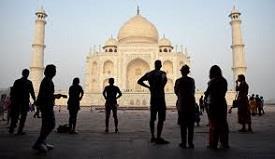
According to a report published by WEF, India has moved up six places to 34th rank on world travel and tourism competitiveness index. The improvement was driven by rich natural and cultural resources and strong price competitiveness.
The Travel & Tourism Competitiveness Index (TTCI) covered 140 economies. Spain topped the list followed by France, Germany, Japan and USA in the top five. Pakistan (121st) remains the least competitive country in South Asia when it comes to T&T.
2 - World Bank Study: Effect of Automation on FDI flows

According to a World Bank study on the effect of automation on FDI, automation will disrupt the flow of capital from rich to poorer countries but the poorest countries could actually gain from automation. Mary Hallward-Driemeier and Gaurav Nayyar use data sets on greenfield foreign direct investments (FDI) and industrial robot usage between 2004 and 2015 to investigate the relationship between automation and FDI flows.
The study finds that as automation increases, FDI flows from high-income countries (HICs) to low- and middle-income countries (LMICs) fall. For a 10% increase of automation in a HIC, the flow of FDIs into LMIC increased by 5.5%.
3 - IMD reports 2019 as the 7th warmest year since 1901
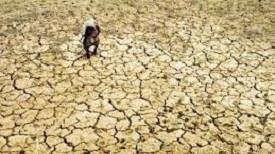
According to the India Meteorological Department (IMD), 2019 was recorded as the seventh warmest year since 1901, but the heating was substantially lower than the highest warming observed in 2016. 1,562 people died due to extreme weather events in 2019.
The five warmest years on record are 2016 (0.71 degree Celsius), 2009 (0.541 degree Celsius), 2017 (0.539 degree Celsius), 2010
(0.54 degree Celsius) and 2015 (0.42 degree Celsius). The IMD said 11 out of 15 warmest years were during the recent past fifteen years (2005-2019).
4 - ICMR released report on Sugar Intake of India

The Indian Council of Medical Research (ICMR) released its report on sugar intake of India. The report was released based on a joint survey conducted by ICMR, NIN (National Institute of Nutrition), Hyderabad and ILSI (International Life Science Institute of India).
According to the report, intake of added sugar in metro cities was 19.5 grams per day. Sugar intake was the highest in Mumbai at 26.3 g/day. The level recommended by ICMR is 30 grams per day.
5 - India listed as 5th biggest Geo-Political Risk of 2020
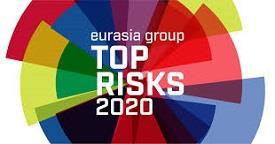
India has been listed as the fifth biggest geo-political risk of 2020 by the political risk consultancy ‘Eurasia's annual 'Top 10 Risks' of the year list. The list was topped by elections in the U.S. the report unveiled that Indian government has adopted a “contentious” social agenda, which not only comes “at the cost” of India’s economy, but also “challenges the secular and democratic foundations” of the republic.
Eurasia’s annual ‘Top 10 Risks’ of 2020 list is considered one of the foremost geopolitical indicators among global investors, multinational firms and various financial and business consultancies.
6 - Indian passport ranked 84th in Henley Passport Index 2020

According to the Henley Passport Index 2020, Indian passport has ranked 84th in the list while Japan’s passport ranked 1st in the index. India's ranking fell from a decade-high ranking of 74 to a low of 84 in 2020.
Japan is followed by Singapore, Germany, South Korea, Italy in the top five. Afghanistan's passport is the world's worst passport while Pakistan's is the fourth worst. The report is based on the data from the International Air Transport Association (IATA).
7 - Shopper Malware affected 14% Indians

Global cybersecurity and anti-virus brand Kaspersky revealed that a new Trojan malware application called 'Shopper' has infected more than 14.23% Indian users. Russia was highest affected with 28.46% followed by Brazil at 18.70% and India at 14.23%. The malicious app spreads unsolicited ads, fake reviews and ratings issued in the name of the victim.
According to a report by the Data Security Council of India (DSCI), India ranks second in the list of countries affected the most by cyberattacks between 2016 and 2018.
8 - Report unveiled that STEM jobs raising in India

One of the job sites, ‘Indeed’ unveiled in its report that jobs related to Science, Technology, Engineering and Mathematics have increased by 44% between November 2016 and November 2019.
Key findings
The leading sectors hiring STEM talent include information technology, banking and financial services.
In 2016, India produced the maximum graduates worldwide with 78 million of which 2.6 million were from STEM.
Delhi led the way for STEM jobs with 31% of overall postings followed by Mumbai, Bengaluru, Pune and Hyderabad.
Roles in demand are software engineer, php developer, .net developer, android developer and full-stack developer.
9 - “The Global Risks Report 2020” released by World Economic Forum
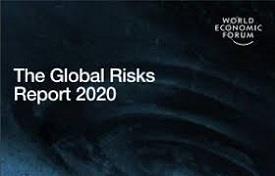
The 15th edition of the World Economic Forum's Global Risks Report was published about the major risks; the world is going to face in the coming years. The report forecasts a year of increased domestic and international divisions and economic slowdown.
For the first time in the survey’s 10-year outlook, the top five global risks in terms of likelihood are all environmental. The report sounds the alarm on extreme weather events, failure of climate-change mitigation, major biodiversity loss and major natural disasters.
10 - Economist Intelligence Unit released Democracy Index 2019
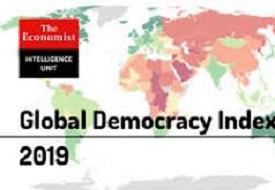
Economist Intelligence Unit (EIU) released the 12th edition of the “Democracy Index 2019: A year of democratic setbacks and popular protest”. The index was topped by Norway followed by Iceland, Sweden, New Zealand and Finland. The average global score slipped from 5.48 in 2018, to 5.44. North Korea was placed at bottom-most in the index.
India slipped 10 places to 51st position in the 2019 Democracy index. The Democracy Index 2019 measures the state of democracy in 167 countries by 60 indicators across five broad categories.
11 - Jharkhand’s Jharia most polluted city in India
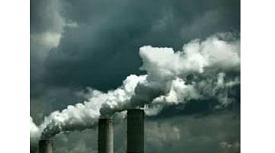
Greenpeace India's fourth Airpocalypse report unveiled that coal-belching town of Jharia in Jharkhand is the most polluted city in India.
Key Findings of report
Six of India's 10 most polluted cities are in Uttar Pradesh.
Delhi is the 10th-most polluted city in India.
Jharkhand's Dhanbad is the second-most polluted city in India.
Lunglei in Mizoram is the least polluted.
Lunglei is also the only Indian city with PM levels under the World Health Organisation’s (WHO) prescribed level of 20/ug/m3.
12 - RBI placed at 6th position in buying gold abroad in World Gold Council report
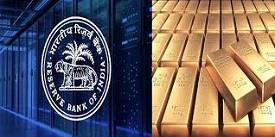
“World Gold Outlook 2020” report released by World Gold Council placed India’s central bank Reserve Bank of India at 6th position in the largest buyer of sovereign gold abroad.
Key Findings
RBI holds 625.2 tonnes of gold, forming 6.6 per cent of its forex reserves.
RBI bought 25.2 tonnes in first 10 months of 2019 to hedge government’s sovereign gold bond issue.
The central banks of China, Russia, Kazakhstan, Turkey, Poland bought more than India in 2019.
Institutional investors in exchange traded funds reported to be the second biggest buyers of gold in 2019.
13 - Global Social Mobility Index 2020
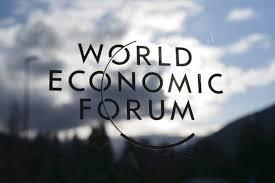
The 1st edition of Global Social Mobility Report 2020 titled “The Global Social Mobility Report 2020: Equality, Opportunity and a New Economic Imperative” was released by World Economic Forum. Index was topped by Denmark followed by Norway, Finland, Sweden, Iceland and Netherlands in top six list. India ranked has 76th position with a score of 42.7.
The World Economic Forum created a new index to measure social mobility, providing a much-needed assessment of the current state of social mobility worldwide. The Global Social Mobility Index benchmarks 82 global economies.
14 - CDP India Annual Report 2019” released by Carbon Disclosure Project

CDP India Annual Report 2019” was released by CDP (Carbon Disclosure Project), a not-for-profit charity running the global disclosure system for investors, companies to manage their environmental impacts. India was placed at 5th among the countries surveyed for corporate commitments to science-based targets.
Key Findings
The report surveyed a total of 6900 companies across the globe.
U.S.A topped the list with 135 SBT companies.
Japan, U.K. and France were placed among top 4.
Investors checked for environmental activity from Indian companies before investing in an organisation.
15 - International Labour Organisation released “The World Employment and Social Outlook”
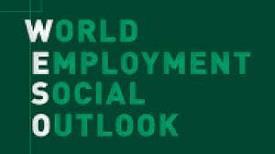
International Labour Organisation (ILO) released the World Employment and Social Outlook report. This report provides an overview of global and regional trends in employment, unemployment, labour force participation and productivity.
Highlights
Count of people unemployed around the world stands at 188 million.
India became founder member of the International Labour Organisation.
The rise in trade restrictions have a significant impact on employment.
165 million people don’t have enough paid work.
120 million have either given up actively searching for work or otherwise lack access to the labour market.
16 - Report on Central and State Water Departments based on Efficiency Targets released
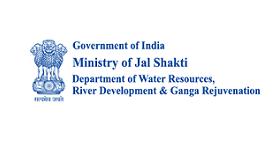
The Ministry of Jal Shakti launched rankings of Central and state governmental water departments based on their efficiency targets. Gujarat was found to be the most water-efficient state in India on efficiency targets in the review of state and Central government water departments.
Highlights
Rajasthan emerged as the third most water-efficient state.
Tamil Nadu significantly improved its ranking from 33 in 2018 to 13th in 2019.
Delhi was found to be worst performing state.
Among seven central departments, Survey of India was found to be the most water-efficient.
Central Pollution Control Board was found to be least water efficient.


















